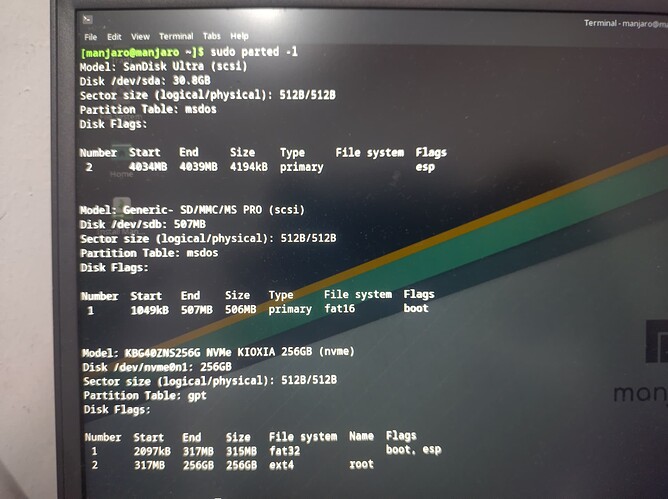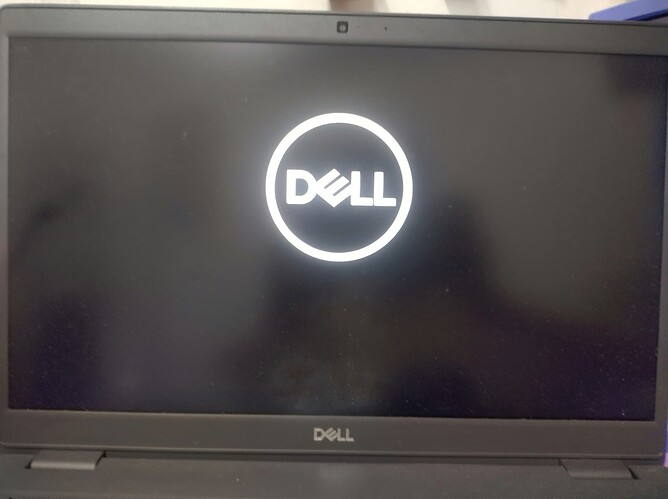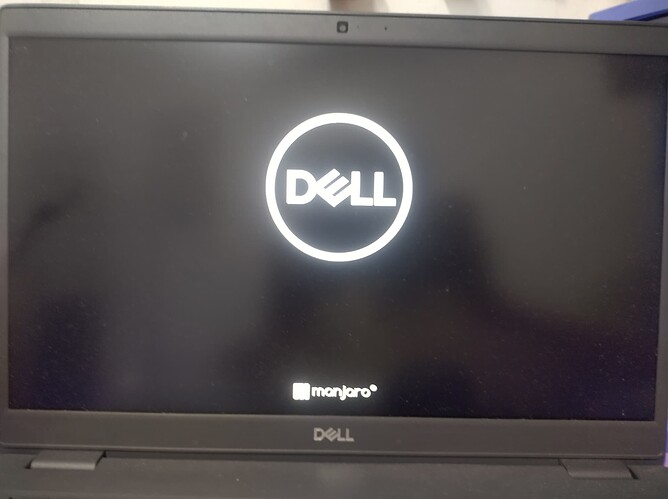error: file /boot/vmlinuz-6.1-x86_64’ not found.
error: you need to load the kernel first.
Press any key to continue.
What should I do now.
Kernel: 6.1.11-1-MANJARO arch: x86_64 bits: 64 compiler: gcc v: 12.2.1
parameters: BOOT_IMAGE=/boot/vmlinuz-x86_64 lang=en_US keytable=us tz=UTC
misobasedir=manjaro misolabel=MANJARO_XFCE_2203 quiet
systemd.show_status=1 splash apparmor=1 security=apparmor driver=free
nouveau.modeset=1 i915.modeset=1 radeon.modeset=1
Desktop: Xfce v: 4.18.1 tk: Gtk v: 3.24.36 info: xfce4-panel wm: xfwm
v: 4.18.0 dm: LightDM v: 1.32.0 Distro: Manjaro Linux base: Arch Linux
Machine:
Type: Laptop System: Dell product: Latitude 3510 v: N/A serial: <filter>
Chassis: type: 10 serial: <filter>
Mobo: Dell model: 0J6VTW v: A03 serial: <filter> UEFI: Dell v: 1.13.0
date: 02/08/2022
Battery:
ID-1: BAT0 charge: 33.9 Wh (100.0%) condition: 33.9/53.0 Wh (63.9%)
volts: 15.7 min: 15.0 model: BYD DELL TXD030B type: Unknown serial: <filter>
status: full
Memory:
RAM: total: 7.53 GiB used: 2.39 GiB (31.8%)
Array-1: capacity: 64 GiB slots: 2 EC: None max-module-size: 32 GiB
note: est.
Device-1: DIMM A type: DDR4 detail: synchronous size: 8 GiB speed:
spec: 3200 MT/s actual: 2667 MT/s volts: curr: 1.2 width (bits): data: 64
total: 64 manufacturer: 019800000000 part-no: K6VDX7-MIE serial: <filter>
Device-2: DIMM B type: no module installed
CPU:
Info: model: Intel Core i7-10510U socket: BGA1528 bits: 64 type: MT MCP
arch: Comet/Whiskey Lake note: check gen: core 10 level: v3 note: check
built: 2018 process: Intel 14nm family: 6 model-id: 0x8E (142)
stepping: 0xC (12) microcode: 0xF4
Topology: cpus: 1x cores: 4 tpc: 2 threads: 8 smt: enabled cache:
L1: 256 KiB desc: d-4x32 KiB; i-4x32 KiB L2: 1024 KiB desc: 4x256 KiB
L3: 8 MiB desc: 1x8 MiB
Speed (MHz): avg: 1740 high: 2300 min/max: 400/4900 base/boost: 2673/2300
scaling: driver: intel_pstate governor: powersave volts: 0.8 V
ext-clock: 100 MHz cores: 1: 2300 2: 800 3: 2300 4: 2300 5: 800 6: 2300
7: 2300 8: 821 bogomips: 36812
Flags: 3dnowprefetch abm acpi adx aes aperfmperf apic arat
arch_capabilities arch_perfmon art avx avx2 bmi1 bmi2 bts clflush
clflushopt cmov constant_tsc cpuid cpuid_fault cx16 cx8 de ds_cpl dtes64
dtherm dts epb ept ept_ad erms est f16c flexpriority flush_l1d fma fpu
fsgsbase fxsr ht hwp hwp_act_window hwp_epp hwp_notify ibpb ibrs
ibrs_enhanced ida intel_pt invpcid invpcid_single lahf_lm lm mca mce
md_clear mmx monitor movbe mpx msr mtrr nonstop_tsc nopl nx pae pat pbe
pcid pclmulqdq pdcm pdpe1gb pebs pge pln pni popcnt pse pse36 pts rdrand
rdseed rdtscp rep_good sdbg sep smap smep ss ssbd sse sse2 sse4_1 sse4_2
ssse3 stibp syscall tm tm2 tpr_shadow tsc tsc_adjust tsc_deadline_timer
vme vmx vnmi vpid x2apic xgetbv1 xsave xsavec xsaveopt xsaves xtopology
xtpr
Vulnerabilities:
Type: itlb_multihit status: KVM: VMX disabled
Type: l1tf status: Not affected
Type: mds status: Not affected
Type: meltdown status: Not affected
Type: mmio_stale_data mitigation: Clear CPU buffers; SMT vulnerable
Type: retbleed mitigation: Enhanced IBRS
Type: spec_store_bypass mitigation: Speculative Store Bypass disabled via
prctl
Type: spectre_v1 mitigation: usercopy/swapgs barriers and __user pointer
sanitization
Type: spectre_v2 mitigation: Enhanced IBRS, IBPB: conditional, RSB
filling, PBRSB-eIBRS: SW sequence
Type: srbds mitigation: Microcode
Type: tsx_async_abort status: Not affected
Graphics:
Device-1: Intel CometLake-U GT2 [UHD Graphics] vendor: Dell driver: i915
v: kernel arch: Gen-9.5 process: Intel 14nm built: 2016-20 ports:
active: eDP-1 empty: DP-1,HDMI-A-1,HDMI-A-2 bus-ID: 00:02.0
chip-ID: 8086:9b41 class-ID: 0300
Device-2: Sunplus Innovation Integrated_Webcam_HD type: USB
driver: uvcvideo bus-ID: 1-6:4 chip-ID: 1bcf:2b98 class-ID: 0e02
Display: x11 server: X.Org v: 21.1.7 compositor: xfwm v: 4.18.0 driver: X:
loaded: modesetting alternate: fbdev,vesa dri: iris gpu: i915
display-ID: :0.0 screens: 1
Screen-1: 0 s-res: 1920x1080 s-dpi: 96 s-size: 508x285mm (20.00x11.22")
s-diag: 582mm (22.93")
Monitor-1: eDP-1 model: BOE Display 0x0819 built: 2018 res: 1920x1080
hz: 60 dpi: 142 gamma: 1.2 size: 344x194mm (13.54x7.64") diag: 395mm (15.5")
ratio: 16:9 modes: 1920x1080
API: OpenGL Message: Unable to show GL data. Required tool glxinfo missing.
Audio:
Device-1: Intel Comet Lake PCH-LP cAVS vendor: Dell
driver: sof-audio-pci-intel-cnl
alternate: snd_hda_intel,snd_soc_skl,snd_sof_pci_intel_cnl bus-ID: 00:1f.3
chip-ID: 8086:02c8 class-ID: 0401
Sound API: ALSA v: k6.1.11-1-MANJARO running: yes
Sound Server-1: JACK v: 1.9.21 running: no
Sound Server-2: PulseAudio v: 16.1 running: yes
Sound Server-3: PipeWire v: 0.3.65 running: yes
Network:
Device-1: Intel Comet Lake PCH-LP CNVi WiFi driver: iwlwifi v: kernel
bus-ID: 00:14.3 chip-ID: 8086:02f0 class-ID: 0280
IF: wlp0s20f3 state: up mac: <filter>
IP v4: <filter> type: dynamic noprefixroute scope: global
broadcast: <filter>
IP v6: <filter> type: noprefixroute scope: link
Device-2: Realtek RTL8111/8168/8411 PCI Express Gigabit Ethernet
vendor: Dell driver: r8169 v: kernel pcie: gen: 1 speed: 2.5 GT/s lanes: 1
port: 3000 bus-ID: 01:00.0 chip-ID: 10ec:8168 class-ID: 0200
IF: eno1 state: down mac: <filter>
WAN IP: <filter>
Bluetooth:
Device-1: Intel AX201 Bluetooth type: USB driver: btusb v: 0.8 bus-ID: 1-10:6
chip-ID: 8087:0026 class-ID: e001
Report: rfkill ID: hci0 rfk-id: 3 state: up address: see --recommends
Logical:
Message: No logical block device data found.
RAID:
Message: No RAID data found.
Drives:
Local Storage: total: 267.59 GiB used: 165.2 GiB (61.7%)
ID-1: /dev/nvme0n1 maj-min: 259:0 vendor: Toshiba model: KBG40ZNS256G NVMe
KIOXIA 256GB size: 238.47 GiB block-size: physical: 512 B logical: 512 B
speed: 31.6 Gb/s lanes: 4 type: SSD serial: <filter> rev: 10410105
temp: 26.9 C scheme: GPT
SMART: yes health: PASSED on: 2y 2d 17h cycles: 650
read-units: 54,430,021 [27.8 TB] written-units: 33,488,536 [17.1 TB]
ID-2: /dev/sda maj-min: 8:0 type: USB vendor: SanDisk model: Ultra
size: 28.64 GiB block-size: physical: 512 B logical: 512 B type: N/A
serial: <filter> rev: 1.00 scheme: MBR
SMART Message: Unknown USB bridge. Flash drive/Unsupported enclosure?
ID-3: /dev/sdb maj-min: 8:16 type: USB vendor: Generic model: SD MMC MS PRO
size: 483.9 MiB block-size: physical: 512 B logical: 512 B type: SSD
serial: <filter> rev: 1.00 scheme: MBR
SMART Message: Unknown USB bridge. Flash drive/Unsupported enclosure?
Message: No optical or floppy data found.
Partition:
ID-1: /mnt raw-size: 238.17 GiB size: 233.38 GiB (97.99%)
used: 165.2 GiB (70.8%) fs: ext4 block-size: 4096 B dev: /dev/nvme0n1p2
maj-min: 259:2 label: N/A uuid: 074b2a58-0d75-4160-b39d-e0f7b4a3ef70
Swap:
Alert: No swap data was found.
Unmounted:
ID-1: /dev/nvme0n1p1 maj-min: 259:1 size: 300 MiB fs: vfat label: N/A
uuid: A421-ED9D
ID-2: /dev/sda1 maj-min: 8:1 size: 3.76 GiB fs: iso9660
ID-3: /dev/sda2 maj-min: 8:2 size: 4 MiB fs: vfat label: MISO_EFI
uuid: 2E29-B694
ID-4: /dev/sdb1 maj-min: 8:17 size: 482.9 MiB fs: vfat label: N/A
uuid: AAD9-1617
USB:
Hub-1: 1-0:1 info: Hi-speed hub with single TT ports: 12 rev: 2.0
speed: 480 Mb/s chip-ID: 1d6b:0002 class-ID: 0900
Device-1: 1-2:2 info: SanDisk Ultra type: Mass Storage driver: usb-storage
interfaces: 1 rev: 2.1 speed: 480 Mb/s power: 224mA chip-ID: 0781:5581
class-ID: 0806 serial: <filter>
Device-2: 1-3:3 info: Dell Universal Receiver type: Keyboard,Mouse,HID
driver: hid-generic,usbhid interfaces: 3 rev: 2.0 speed: 12 Mb/s power: 100mA
chip-ID: 413c:301c class-ID: 0300
Device-3: 1-6:4 info: Sunplus Innovation Integrated_Webcam_HD type: Video
driver: uvcvideo interfaces: 2 rev: 2.0 speed: 480 Mb/s power: 500mA
chip-ID: 1bcf:2b98 class-ID: 0e02
Device-4: 1-7:5 info: Realtek USB2.0-CRW type: Mass Storage
driver: ums-realtek interfaces: 1 rev: 2.0 speed: 480 Mb/s power: 500mA
chip-ID: 0bda:0177 class-ID: 0806 serial: <filter>
Device-5: 1-10:6 info: Intel AX201 Bluetooth type: Bluetooth driver: btusb
interfaces: 2 rev: 2.0 speed: 12 Mb/s power: 100mA chip-ID: 8087:0026
class-ID: e001
Hub-2: 2-0:1 info: Super-speed hub ports: 6 rev: 3.1 speed: 10 Gb/s
chip-ID: 1d6b:0003 class-ID: 0900
Sensors:
System Temperatures: cpu: 45.0 C pch: 43.0 C mobo: 44.0 C
Fan Speeds (RPM): cpu: 0
Info:
Processes: 249 Uptime: 2h 49m wakeups: 380 Init: systemd v: 252
default: graphical tool: systemctl Compilers: gcc: 12.2.1 clang: 15.0.7
Packages: pm: pacman pkgs: 1144 libs: 317 tools: pamac pm: flatpak pkgs: 0
Shell: Bash (sudo) v: 5.1.16 running-in: xfce4-terminal inxi: 3.3.25

